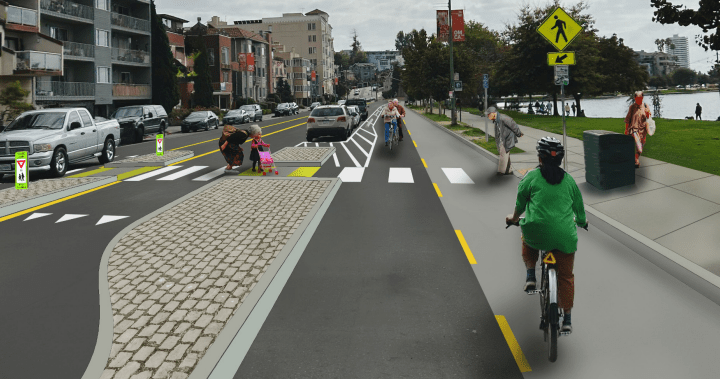Feds Call “All Hands On Deck” For Detroit Transit
2:13 PM PDT on August 10, 2011
For the last two days, transit experts from around the country have been hunkered down in Detroit to devote their collective expertise to making the Motor City a better city for transit.
The Federal Transit Administration convened the panel, which included current and former transit agency leaders from Salt lake City, Denver, Portland, Atlanta and Dallas. The meeting was to focus on the planned Woodward Avenue light rail project, which received a $25 million TIGER grant, to envision a “bright future” for Detroit transit. Bickering between private donors and public officials over the design of the rail line (curb-running versus center-running trains) and conflict between the primary transit providers in Detroit have created problems for the project, and were likely a reason the feds decided to step in with some assistance from above.
Of course, the leaders that came together to advise Detroit come from very different cities with their own sets of issues, but none with the complex set of challenges besetting Detroit: an unemployment rate triple the national average, the highest foreclosure rate in the country, more than a quarter of its property vacant, a 25 percent drop in population over the past decade, and most of the region’s jobs well outside the city limits, with no public transportation to get there. Can a city like Portland really be of any help?
“Given the current technical capacity, as well as the lack of experience, as well as the extraordinary needs in Detroit, we wanted to treat this project differently, and sort of attack the problems collectively, rather than just wait to see if the city can attack them themselves,” FTA Administrator Peter Rogoff told Streetsblog.
Dan Lijana, a spokesperson for Detroit Mayor Dave Bing, said that although Detroit’s transit system will undoubtedly look very different from the other cities’ systems, there were some concrete things they wanted to learn from others’ experience: how to space transit stops, how to design the routes, and, especially, how to foster economic development along the corridor.
“From the city’s perspective, the economic development tool that this brings is absolutely essential for the city,” Lijana said. “You have an increased level of investment and viability for the neighborhoods down Woodward. That is an absolute, significant benefit. And I think also there’s a recognition that there needs to be better connectivity, citywide and throughout the region.”
Detroit is one of five cities selected to be part of the Obama administration’s new Strong Cities, Strong Communities program, which aims to help build the capacity of local governments to “develop and execute their economic vision and strategies.” Detroit and Fresno are the only two receiving special attention from the FTA, according to Rogoff, with Detroit getting extra-special attention. The FTA had more people on the ground than usual in Detroit, helping guide city officials through the environmental impact review process in addition to the all-star panel.
Lijana said that Mayor Bing has worked hard to get more federal attention on Detroit, and that both Rogoff and Transportation Secretary Ray LaHood have taken a major interest in the city.
Indeed, Rogoff said, the need in Detroit is great. “They rank about ninth in the nation as far as the size of the metropolitan area and 107th in the volume of transit that they provide," he said. "If one was to start with a clean slate and develop transit service of any size, you wouldn’t draw the DDOT route maps and the SMART route maps and the timetables the way they have them. They’ve made efforts to coordinate, but there’s a lot of room for improvement.”
(When I checked DDOT’s website for route maps to better understand Rogoff’s point, I didn’t find them. What I did find was a “News and Events” sidebar where the events were biweekly “Citywide Furlough Days” where the DDOT offices are closed.)
Rogoff said there are transit-dependent constituencies in Detroit who face hourlong waits, even during peak times. Those who work at off-hours, like hospital workers, are often the ones that suffer from service cuts the most, with their commute times stretching unimaginably because of poor service. Rogoff says his panel found obstacles to progress for Detroit’s transit system, like municipal taxation systems that bar local option sales taxes without a constitutional amendment. They’re looking for alternative ways to raise revenues.
“We need to collectively chart a path for a much better transit system that’s going to make greater Detroit a place where young vibrant professionals want to move to, rather than move away from,” said Rogoff.
Stay in touch
Sign up for our free newsletter
More from Streetsblog San Francisco
Update on Oakland DOT’s Lakeshore Protected Bike Lane Project
Public seems fairly positive and accepting towards the coming project. Let's hope it stays that way





